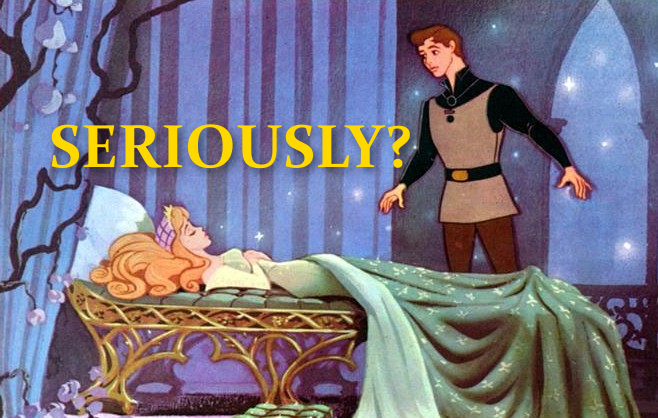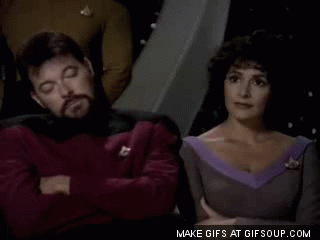Disney’s “Sleeping Beauty” Is Super Feminist
I have a terrible admission – until about two weeks ago, I’d never seen the uber-classic Disney flick “Sleeping Beauty.” I hear your indignant gasps, and I accept them humbly. Why? Well, for starters, I grew up (and still remain) a boy with boy parts. Now, I’m not saying insert gender identity sensitive statement here. All I’m saying is that I played with guns (toy and otherwise), I was in karate, and Arnold Schwarzeneggar’s “Commando” had a frequent spot in my movie rotation. So when I say “boy,” I want you know exactly what I mean. I had a Jean-Claude Van Damme mullet for an entire year. Yeah. Speaking of terrible admissions.
As a kid, I never watched Snow White, Cinderella, or Sleeping Beauty – they were about princesses, and I was about mutant turtles. However, Snow White had dwarves and a guy with an axe, and that appealed to me at least enough for a cursory watch. I’m still not certain I’ve seen Cinderella, because “dancing and shoes” seems to play prominently. Sleeping Beauty, however, has “sleep” and “beauty” in the title, which hit me like a tactical nuke designed to eradicate all interest on contact.
Now, I’m painting a picture of some kind of macho douche bag that is not entirely accurate. Two of my favorite shows are “Buffy the Vampire Slayer” and “Gilmore Girls.” I read all the Twilight books, for some reason. I wrote a young adult book about a girl. However, I like my fantasy stories to have swords and dragons, that kind of thing.
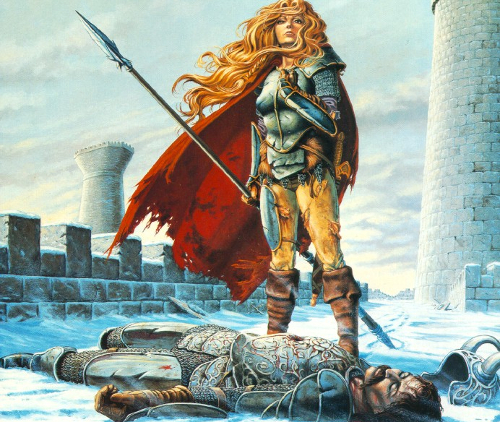
Imagine my surprise when my wife pitched the movie to me the other day, and before I could fully form the word “meh” she explained to me that a dude impales a dragon with a sword. My “meh” transformed into a “mwwhaaaat?!”
I then checked the running time, decided the movie was very short, and we gave it a go.
Misconceptions
Alright. Now, I’ve heard A LOT about Sleeping Beauty over the years. I actualIly knew the sword/dragon thing before my wife told me, but I didn’t really believe it until she insisted it was true. Most of what I’d heard about Sleeping Beauty was how backwards and sexist it is. Or, if not outright sexist, I heard it at least provided an outmoded story about a weak, non-empowered princess falling into danger and just kickin’ it until a dick with a sword arrived.
So I sit down, beer in hand to remind myself how dudely I was, and watch the movie with my wife.
Imagine my surprise when I find that not only is it a good movie, but that it’s one of the most feminist movies I’ve ever seen.
Cue record scratch. Surprised? Don’t get mad. Lemme explain.
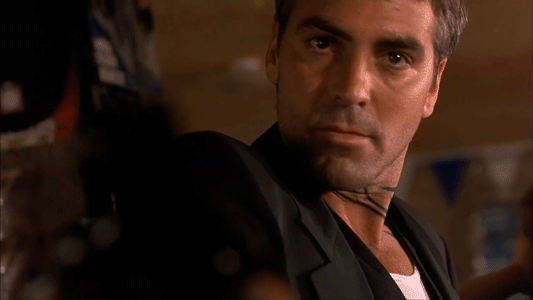
Sleeping Beauty is the Most Feminist Disney Movie They’ve Ever Made
I recently read this article excoriating Sleeping Beauty for being a terrible example for girls, it’s awful, men are pigs, etc. Now, the article kind of dissolves into a Neil Gaiman advertisement (which is fine, he’s incredible), but it definitely inspired me to write out this ardent defense of the movie.
Lets look at the facts of the Disney version, because that’s the version anyone is ever talking about when they talk about Sleeping Beauty. In that story, Aurora/Briar Rose/Sleeping Beauty is a complete and utter non-character. Animals seem to like her, she wears a black corset over a pastel dress, and that seems to be the end of her list of notable character traits. She likes dancing? Maybe? Idly daydreaming about dudes? You could include those if you’re feeling generous.
Aurora is a dishrag, no question. The color-changing dress has more effect on the plot than Aurora does. And if you look at the most oft-discussed outline of the story, it’s horrible. Aurora wants to meet a guy, she does. They dance, and he dances pretty good, so now she wants to marry him. She’s immediately punished for her temerity, falling into an unending slumber. Then, Prince Philip (who is a dude), literally rides in on a white horse, does some extreme gardening, murders a dragon with a sword, and then saves her by molesting her in her sleep.
Where’s the feminist statement in that? Well, there isn’t one. However, that’s not at all what the plot of the movie is. Lemme explain.
Let’s start at the “kind of feminist if you squint” side of the equation, and then slowly move toward the “holy crap super feminist” end.
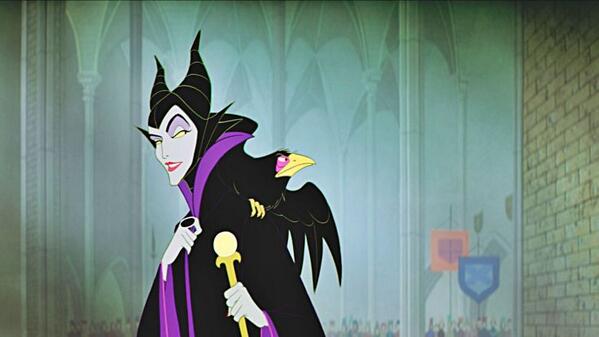
You’ve Got to Go Out and Kick Ass
Maleficent is terrifying. Maleficent destroys lives for fun, basically. Ignoring the awful live-action version, Maleficent isn’t defined by her relationship to a guy. She isn’t love-spurned, she doesn’t lament her monstrous appearance, she isn’t really even after revenge. She doesn’t get an invite to a party, so she shows up and sets the world record for “Most People at a Party with Pants Full of Terror Shit.”
Her magic knows no limits, and she appears to be some kind of wicked fairy god, a “Queen of Air and Darkness” figure. She is easily the most powerful of all of the Disney villains – this is even confirmed by the game “Kingdom Hearts,” an official Disney product. In it, when the multiverses get all cuddly, it’s Maleficent who leads the villains from all the other Disney movies. When she claims to be the “Master of All Evil,” that ain’t no idle boasting. The “All the Powers of Hell” line may not be confirmed, but it’s certainly plausible. I’ve never had Hell Powers though, so it’s a guess.
Maleficent’s henchmen take out Prince Philip in roughly two seconds. Then she sits him in a jail cell and gives him a pretty chilling monologue (with pictures) about not letting him leave until he’s either a wretched old man or a ghost.
Maleficent, the most powerful Disney villain, is a woman.
Now, there’s an argument you’re probably already making: “Okay, so, the most powerful woman is of course portrayed in a bad light.” I’d argue that power is power, but I’m willing to agree it’s not the best example of feminist ideals in the movie. Instead . . .
Aurora Is Not the Protagonist
Aurora is not the protagonist of Sleeping Beauty. Neither is Prince Philip. I know I sound like a ululating cat lady with a Ralph’s bag on her head, but stick with me.
The protagonists of Sleeping Beauty are three middle-aged women. Can you think of any popular movie in the history of cinema where the protagonists of an epic fantasy story are three middle-aged, non-sexually portrayed women?
I’ll wait.
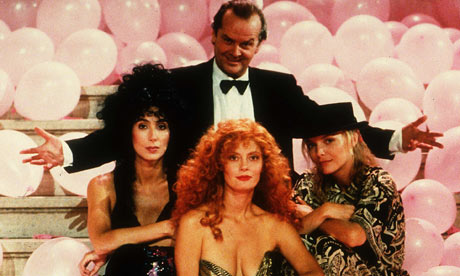
Stories are about choices, and agency. The protagonist makes choices that change their life, and they have the agency to do it. Aurora makes no choices in the movie. Philip makes choices in that he choses to be brave and throw himself into danger, but he definitely doesn’t really have any agency – he’s at the mercy of more powerful women the entire story (on both sides of the moral spectrum).
The three fairies, Flora, Fauna, and Merryweather are inarguably the main characters of Sleeping Beauty. When Maleficent lays the curse on Aurora, it’s the fairies who decide, and have the agency, to protect her. It’s the fairies who decide to hide Aurora in the woods, and it’s the fairies who decide to give up their magic (a great personal sacrifice) to keep Aurora hidden. More damningly, it’s the mistakes of the fairies (falling to the sin of pride during the dress color fight) that leads Maleficent to Aurora.
Philip tries to help, but since he’s not the main character he gets mothballed immediately by Maleficent, who mocks his pointless effort. The fairies, unable to use their magic to do anything but help others, pick Prince Philip to buff with magic. They break Philip out of prison and begin the third act, which is one of the most thorough examples of an escort mission ever put to film. They give him the magic shield, they give him the magic sword. They sorcelate the worst of the obstacles out of his way, and they even take out Maleficent’s familiar.
When Philip finally faces Maleficent in her dragony dragon form, he loses. He puts up a valiant effort, and good on him, but he ends up with no shield, on the ground, about to receive a hands-on lesson about dragon gastro-intestinal tracts. Then, the fairies rock a spell to change the magic sword into a magic FLYING sword that can’t miss, at which point Philip pulls the trigger and (predictably) doesn’t miss. Philip goes and kisses Aurora (because the fairies tell him to), and the credits roll.
The movie ends through the actions of our protagonists (the fairies). Aurora and Philip get together without much motivation, but that makes sense, because they’re just side characters, really.
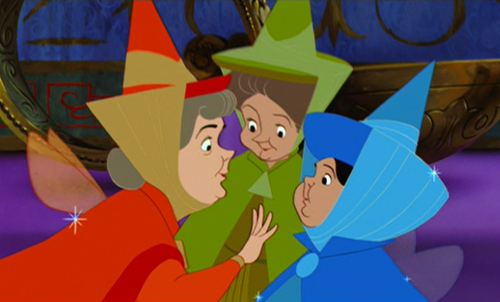
What Does It All Mean?
Giving three aging fairies the most screen time and the bulk of the action is crazy unorthodox, and describes a universe where three older women can be heroes through cleverness and hard work. You know, a universe like our non-movie universe.
Okay, so Princess Aurora is a lame duck. Well, good. While I love the tough Disney princesses of the modern era, I think there’s something even MORE progressive by saying that the “strong female role model” in the movie isn’t a princess. Teaching little girls to be princesses, even tough princesses, might not be the healthiest course of action. In fact, it’s not a bad lesson to learn that sometimes the pretty, vapid, rich girl is largely useless.
I plan on being a father in the near future, and I’d rather teach my girls to be clever and resourceful, and that age ain’t nothin’ but a number. That the older women in your family can be heroes. That pretty girls and tough pretty guys (and tough pretty girls) are not the end-all, be-all of heroic, strong role models.
There’s nothing inherently wrong with wanting to be a rich, beautiful princess, but it can be a dark place to start when the world decides to disagree with you.
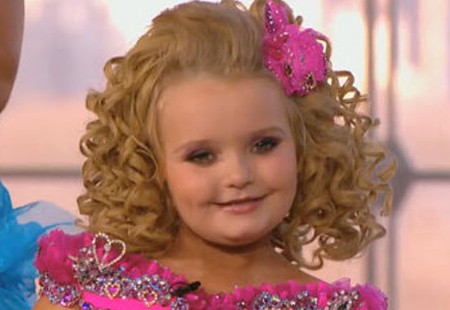
Message Envy
To break it down: Sleeping Beauty is equal. The young female lead is a mop, the young male lead is a tool, and the evil female villain is opposed by good female heroes. Done and done.
What’s the message of Sleeping Beauty? The message isn’t “wait for a guy to save you.” The message isn’t “wait for a beautiful girl to fall into your lap because you earned it.” Those messages, which are constantly attributed to Sleeping Beauty, come from a completely flawed perspective on the movie.
It’s a simple message, one that rings resonant: Do everything you can to protect decent people from assholes.
That’s all. No matter your age / weight / gender. That seems pretty goddamn feminist to me.
Okay, Riker, the lecture about girl stuff is over.

